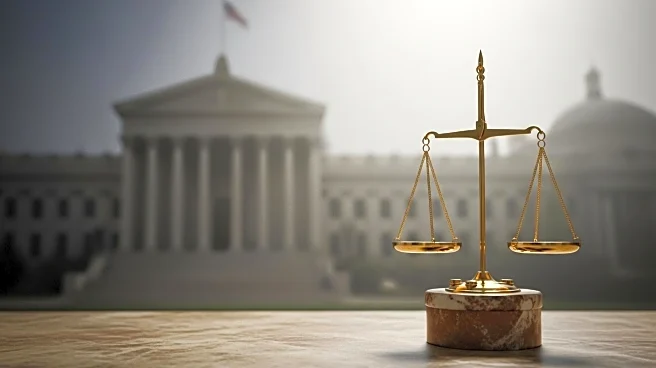What is the story about?
What's Happening?
President Trump's initiative to intensify law enforcement in Washington, D.C., has encountered significant legal obstacles. Over the past month, federal prosecutors have struggled to secure indictments from grand juries in at least five cases involving alleged assaults on federal officers. These cases include incidents such as Alvin Summers' altercation with a U.S. Park Police officer and Sean Charles Dunn's 'Sandwich Guy' episode, where he threw a salami sub at a Customs and Border Protection agent. Despite the administration's efforts to present a strong front against crime, the grand juries have repeatedly refused to indict, highlighting potential weaknesses in the cases presented by prosecutors.
Why It's Important?
The repeated failures to secure indictments underscore potential flaws in the legal strategy employed by federal prosecutors under President Trump's directive. This situation raises questions about the effectiveness of the administration's crime crackdown and its impact on the judicial system. The refusal of grand juries to indict may reflect broader public sentiment in Washington, D.C., where Trump's law enforcement surge is unpopular. The legal challenges could hinder the administration's ability to enforce its policies and may lead to increased scrutiny of its approach to crime and law enforcement.
What's Next?
The administration may need to reassess its legal strategy and consider adjustments to its crime crackdown initiative. Prosecutors might face increased pressure to present stronger cases to grand juries, and the administration could encounter further resistance from local residents and legal professionals. The ongoing legal challenges may prompt discussions about the balance between federal authority and local governance, as well as the implications for civil liberties and community relations in Washington, D.C.
Beyond the Headlines
The legal setbacks in President Trump's crime crackdown could have broader implications for federal law enforcement practices and the relationship between the administration and local communities. The situation highlights the potential for government overreach and the role of grand juries as a check on prosecutorial power. The administration's approach may also influence public perceptions of federal law enforcement and its impact on civil rights and community trust.















